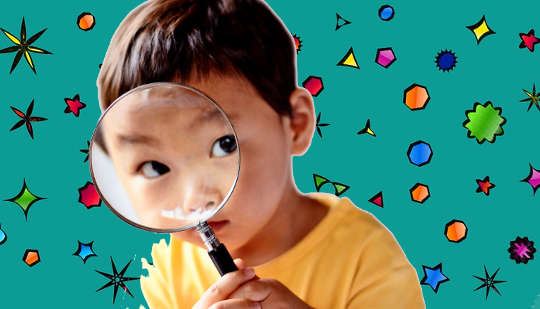
Preschoolers are more likely to choose to gather more information about a topic if they know just enough about it to find it interesting, but not too much that it becomes boring, research finds.
Preschool children are sensitive to the gap between how much they know and how much there is to learn, the finding indicates.
Researchers say this “optimal” amount of existing knowledge creates the perfect mix of uncertainty and curiosity in children and motivates them to learn more.
“There is an infinite amount of information in the real world,” says lead author Jenny Wang, an assistant professor of cognitive psychology at Rutgers University. “Yet despite having to learn so much in such a short amount of time, young children seem to learn happily and effectively. We wanted to understand what drives their curiosity.”
The study, published in the journal Psychological Science, focuses on how children’s knowledge level influences what information they find interesting. The findings suggest that children are not simply attracted to information by its novelty.
According to Wang, children are naturally curious but the difficult question is how to harness this natural curiosity.
“Ultimately, findings like this will help parents and educators better support children when they actively explore and learn about the world,” Wang says.
In a series of experiments, Wang and her coauthors designed in-person and online storybooks to measure how much three- to five-year-old preschool children know about different “knowledge domains.” The experiment also assessed their ability to understand and comprehend a specific topic, such as contagion, and asked how children’s current knowledge level predicts their interest in learning more about it, including whether someone will get sick after playing with a sneezing friend.
“Intuitively, curiosity seems to belong to those who know the most, like scientists, and those who know the least, like babies,” says Wang, who directs the Rutgers Cognition and Learning Center (CALC). “But what we found here is quite surprising: it was children in the middle who showed the most interest in learning more about contagion, compared to children who knew too little or too much.”
Source: Rutgers University

Related Books:
Here are 5 non-fiction books on parenting that are currently Best Sellers on Amazon.com:The Whole-Brain Child: 12 Revolutionary Strategies to Nurture Your Child's Developing Mind
by Daniel J. Siegel and Tina Payne Bryson
This book provides practical strategies for parents to help their children develop emotional intelligence, self-regulation, and resilience using insights from neuroscience.
Click for more info or to order
No-Drama Discipline: The Whole-Brain Way to Calm the Chaos and Nurture Your Child's Developing Mind
by Daniel J. Siegel and Tina Payne Bryson
The authors of The Whole-Brain Child offer guidance for parents to discipline their children in a way that promotes emotional regulation, problem-solving, and empathy.
Click for more info or to order
How to Talk So Kids Will Listen & Listen So Kids Will Talk
by Adele Faber and Elaine Mazlish
This classic book provides practical communication techniques for parents to connect with their children and foster cooperation and respect.
Click for more info or to order
The Montessori Toddler: A Parent's Guide to Raising a Curious and Responsible Human Being
by Simone Davies
This guide offers insights and strategies for parents to implement Montessori principles at home and foster their toddler's natural curiosity, independence, and love of learning.
Click for more info or to order
Peaceful Parent, Happy Kids: How to Stop Yelling and Start Connecting
by Dr. Laura Markham
This book offers practical guidance for parents to shift their mindset and communication style to foster connection, empathy, and cooperation with their children.
Click for more info or to order
This article originally appeared on Futurity
























